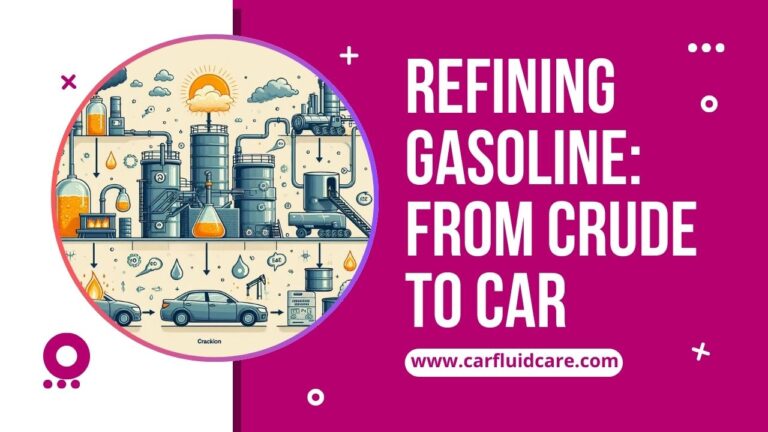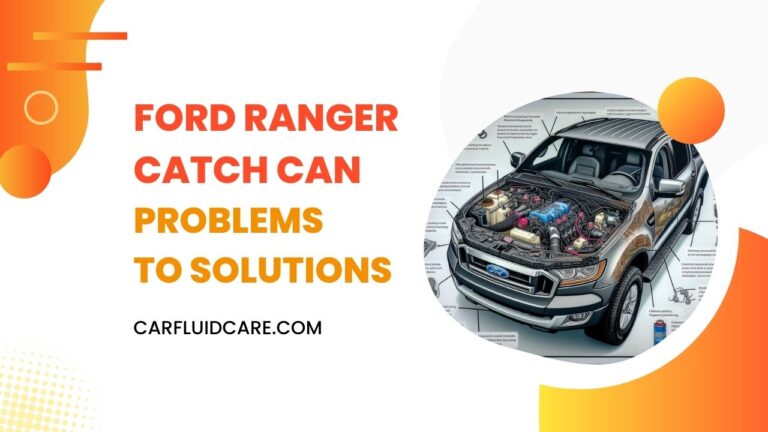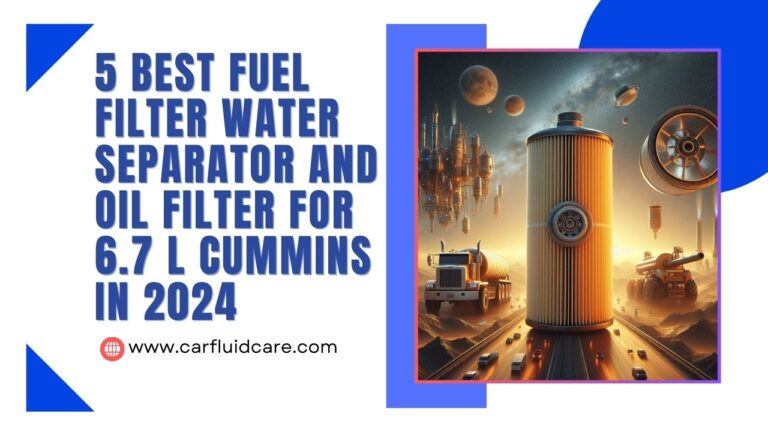Turbo Diesel Engines: Power, Precision, and Performance

Efficient fuel consumption, high torque, longer lifespan, lower CO2 emissions, and better fuel economy are advantages of turbo diesel engines.
In this blog, we’ll delve into the fascinating details of turbo diesel engines, exploring their capabilities, applications, and the key factors.
What Is Turbo In Diesel Engine?
A turbo diesel engine is any diesel engine equipped with a turbocharger. Unlike naturally aspirated engines that rely solely on intake stroke to pull in air, turbodiesels use the exhaust gases to drive a turbine connected to an air compressor. This allows for more efficient fuel combustion and increased engine power.
Turbocharger Components:
- Turbine: Powered by exhaust gases, it spins at high speeds.
- Compressor: Driven by the turbine, it compresses the intake air before entering the engine cylinders.
- Intercooler (optional): Cools down the compressed air to further improve efficiency and power output.
Things to Consider with Turbo Diesel Engines:
- Turbo lag: There may be a slight delay in power delivery as the turbocharger spools up, especially at low RPMs.
- Maintenance: Turbos require specific maintenance, including oil changes and regular inspections.
- Cost: Turbodiesels tend to be more expensive than naturally aspirated diesels upfront.
Here are a variety of turbo engine images for you to explore:
Image bosanor time a jaj a ache kon website theke newa no follow kore deben majhkne image gula rakhben. Kono bullet rakhben na
Overall turbocharger:
Classic photorealistic:
turbocharger on white background
Exploded view diagram:
turbocharger diagram highlighting parts
Cutaway rendering:
turbocharger cutaway showing internal components
Turbine blades close-up:
turbine blades in high detail
Compressor fins intricate texture:
Truck engine bay with dual turbos:
truck engine bay with twin turbos
Motorcycle engine showcasing compact turbo:
motorcycle engine with turbocharger
Specific engine types:
High-performance car engine with large turbo:
tuned car engine with performance turbo
Modern diesel engine with integrated turbo:
modern diesel engine with common rail turbo
Powerful jet engine with multiple turbines:
jet engine with multiple turbine stages
Read More about The Significance Of The Role Of Viscosity Index Improvers
What Are The Benefits Of A Turbo Diesel Engine?
This compressor pumps more air into the engine cylinders, resulting in several key benefits:
Increased Power and Torque: More air means more fuel can be burned, leading to a significant boost in horsepower and torque compared to naturally aspirated diesels. This makes turbodiesels ideal for applications demanding power, like towing, hauling, and hill climbing.
Improved Fuel Efficiency: While it seems counterintuitive, the efficient burning of additional fuel thanks to the increased air density actually translates to better fuel economy in many cases. Turbodiesels can achieve impressive mileage compared to their gasoline counterparts, especially at highway speeds.
Enhanced Driving Experience: The extra power and torque offer a more responsive and satisfying driving experience, especially when accelerating or tackling challenging terrain.
Lower Emissions: Due to their efficient combustion, modern turbodiesels often emit lower levels of certain pollutants compared to gasoline engines.
Here are some advantages of turbo diesel engines:
- Better Fuel Efficiency
- Higher Torque and Power
- Improved Performance at Altitude
- Less Emissions than Others
- Known for their robust construction and durability.
- Better Towing Capability
- Better Fuel Range:
- Economic Benefits
What Is The Disadvantage Of Turbo Diesel Engine?
Some of the disadvantages include:
- Turbo Lag
- Higher Fuel Consumption at Low RPMs
- Higher Maintenance Costs
- Noise at Low Speeds
- Slow Speed Increase
- Complexity
- Potential for Overheating
Why Are Turbo Diesels So Fast?
Turbocharged diesel engines are faster due to increased air intake and combustion efficiency.
Working Principle Of Turbocharger In Diesel Engine
Here’s a step-by-step explanation of the working principle of a turbocharger in a diesel engine:
1. Exhaust Gas Drives the Turbine
The process begins with the operation of the diesel engine. During combustion, high-pressure exhaust gases are produced.
2. Turbine Operation
The exhaust gases passing through the turbine blades cause the turbine to spin. The turbine is connected to a shaft, and as it spins, it transfers rotational energy to the shaft.
3. Compressor Operation
The other end of the shaft is connected to a compressor located in the air intake system of the engine. As the turbine spins the shaft, the compressor also spins.
4. Increased Air Intake
The compressed air from the turbocharger is at a higher pressure and density than the ambient air.
5. Improved Combustion
With more oxygen available, the combustion process is more efficient. Improved combustion results in better fuel efficiency and increased power output from the engine.
Read Also 3 Best Oil Catch Can For 350z In 2024
Diesel Engine Tuning Principles
Here are some key principles and aspects to consider when tuning a diesel engine:
- Fuel Injection Timing
- Fuel Injector Calibration
- Boost Pressure Control
- Air-Fuel Ratio
- EGR (Exhaust Gas Recirculation) System
- Exhaust System Upgrades
- Intercooler Efficiency
- Engine Timing and RPM
- Monitoring and Diagnostics
- Transmission Tuning
Turbo Diesel Indianapolis
Turbo Diesel Indianapolis offers high-performance diesel engine services, specializing in maintenance, repairs, and performance upgrades
Diesel Turbo Upgrade Kit
Upgrade your turbo system with precision engineering and advanced technology for optimal performance.
The Supercell Turbos Diesel Turbo Upgrade Kit features a powerful 66/88mm turbo with a billet compressor wheel. This high-performance upgrade enhances engine efficiency, providing increased horsepower and torque for diesel vehicles.
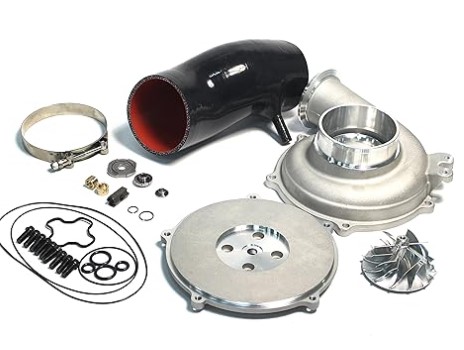
Smallest Turbo Diesel Engine
The DDiS 125 is one of the smallest in its category.
Turbo Diesel Price
Turbo Diesel prices range from $5,900 to $6,800, offering a variety of options for budget-conscious consumers seeking efficient diesel-powered vehicles.
Turbo Diesel Vs Diesel
Turbo diesel engines incorporate a turbocharger, enhancing power and efficiency by compressing air. Non-turbo diesel engines lack this feature, resulting in lower performance.
Turbo diesel engines generally offer improved fuel economy and torque compared to their non-turbo counterparts.
Turbo Diesel Cars
Turbo Diesel cars are vehicles equipped with diesel engines that incorporate a turbocharger.Turbo diesel engines are known for their fuel efficiency. Diesel engines, in general, produce more torque than their gasoline counterparts.
Turbo Diesel Trucks
- Ram 1500
- 2024 Ram HD
- 2024 GMC Sierra 1500
- 2024 GMC Sierra HD
- Chevrolet Silverado 1500
- 2017 Chevrolet Colorado
- 2017 Ford F-150 XL
Turbo Diesel Injection
Turbo Diesel Injection refers to a fuel injection system used in diesel engines, featuring a turbocharger to increase air intake. This technology enhances engine efficiency, power, and fuel economy.
Turbocharger In Petrol Engine
A turbocharger in a petrol (gasoline) engine is a forced induction device that increases the air pressure and density entering the combustion chamber.
This allows for more efficient combustion, resulting in increased power output, improved fuel efficiency, and enhanced overall engine performance.
How Does A Supercharger Work
Here’s a basic explanation of how a supercharger works:
1. Air Compression
The core function of a supercharger is to compress the incoming air before it enters the engine’s cylinders. This is achieved through a compressor, which is typically a belt-driven unit mounted on the engine.
2. Driven by Engine
Most superchargers are driven by a belt connected to the engine’s crankshaft. As the engine runs, the crankshaft turns the supercharger, causing the compressor to spin.
3. Compressor Design
Superchargers come in different designs, but one common type is the “roots” or “twin-screw” design. In this design, the supercharger has two counter-rotating screws or lobes that trap and compress air as they rotate. Another type is the centrifugal supercharger, which uses an impeller to compress air much like a turbocharger.
4. Increased Air Density
By compressing the air, a supercharger increases its density. This is crucial because, in an internal combustion engine, more fuel can be burned efficiently with a higher concentration of oxygen in the air.
5. More Fuel Combustion
With the increased air density, more fuel can be mixed with the air in the combustion chamber. This results in a more powerful and efficient combustion process.
6. Increased Power Output
The overall effect of a supercharger is an increase in the engine’s power output. This can lead to improved acceleration, higher horsepower, and better overall performance.
Turbo Diesel Cummins
Cummins offers a range of turbo diesel engines, with the 6.7L variant being the most powerful, delivering 420 hp and 1,075 lb-ft of torque for 3500 trucks and RAM 2500.
Turbo Diesel Motor
The benefits of choosing a Turbo Diesel Motor are numerous. Drivers can enjoy the substantial torque produced by these engines, providing strong acceleration and towing capabilities.
Turbo Diesel Trucks
Turbo diesel trucks utilize a turbocharger to enhance the performance of their diesel engines. This technology increases power, efficiency, and torque, making diesel trucks popular for towing and heavy-duty applications.
V12 Cummins Engine
The V12 Cummins diesel engine is designed for mining applications, featuring 12 cylinders. It provides a power range from a minimum of 690 kW (938.139 hp) to a maximum of 1,081 kW.
Turbo Diesel Ford
The Turbo Diesel Ford boasts a robust power output of 340 PS and an impressive torque of 700 N⋅m (516 lb⋅ft), ensuring a formidable performance on the road.
Read Also STP Octane Booster Review Performance, Side Effects, & More!
Function Of Turbocharger In Diesel Engine
Here’s how a turbocharger works and its key functions in a diesel engine:
- Increased Air Pressure and Density: Compressing the air before it enters the cylinders increases its pressure and density.
- Improved Combustion: With higher air pressure, more oxygen is available for combustion when combined with the injected fuel.
- Enhanced Engine Power and Torque: The increased air supply allows the engine to burn more fuel during each combustion cycle, leading to increased power and torque.
- Fuel Efficiency: Turbochargers can help improve fuel efficiency by allowing the engine to extract more energy from each unit of fuel.
- Altitude Compensation: They help maintain optimal engine performance by compensating for the reduced air density.
- Reduced Emissions: Improved combustion efficiency in turbocharged engines often leads to reduced emissions of pollutants.
- Downsizing and Downsweeping: Turbochargers enable the downsizing of engines.
Turbo Diesel Okc
Turbo Diesel OKC specializes in turbo diesel engine repairs and maintenance in Oklahoma City. Their expert technicians provide quality service for diesel vehicles, ensuring optimal performance and reliability.
Turbo Diesel Sound
Turbo diesel engines produce a distinct sound characterized by a deep rumble and a noticeable turbo whine. The combination of combustion and turbocharger creates a unique auditory signature in these vehicles.
Diesel Turbo Kits
The Dorman 667-023 Turbocharger Kit is designed to replace damaged or worn turbocharger lines efficiently. This kit ensures reliable performance and proper function, providing a convenient solution for turbocharger maintenance.
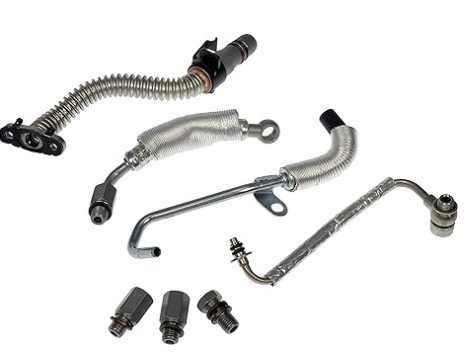
How Long Do Turbo Diesel Engines Last?
The lifespan of turbo diesel engines can vary, but many can last up to 200,000 miles with proper maintenance. Factors such as driving conditions, maintenance practices, and engine design influence longevity.
Are Turbo Diesels Reliable?
Turbo diesel engines are generally reliable, offering fuel efficiency and torque. However, proper maintenance is crucial. Regular servicing and addressing issues promptly contribute to their long-term durability and performance.
How Much Hp Does A Turbo Add To A Diesel?
The horsepower added to a diesel engine by a turbocharger can vary widely, typically ranging from 40 horsepower to as much as 300 horsepower.
What Kind Of Gas Does A Turbo Diesel Engine Take?
A turbo diesel engine typically uses diesel fuel, which is a specific type of fuel designed for diesel engines.
What Causes A Diesel Turbo To Fail?
Some common causes of diesel turbocharger failure include:
- Lack of Lubrication
Insufficient oil supply to the turbocharger can lead to increased friction and heat, causing premature wear and eventual failure.
- Contaminated Oil
Contaminants in the oil, such as dirt, debris, or metal particles, can accelerate wear on the turbocharger components.
- Oil Coking
This occurs when oil is subjected to high temperatures and starts to solidify, forming deposits that restrict oil flow and reduce lubrication.
- Excessive Shaft Play
Over time, the shaft in the turbocharger may develop excessive play due to wear on the bearings. This can result in misalignment and decreased efficiency.
- Foreign Object Damage (FOD)
Installing effective air filters and avoiding operating the engine in dusty or debris-prone environments can help mitigate FOD.
- Cooling Issues
Inadequate cooling can lead to elevated temperatures within the turbocharger, affecting its performance and lifespan.
Turbo Diesel Problems
Here are some common issues associated with turbo diesel engines:
- Turbocharger Failure
Turbochargers can fail due to issues like oil starvation, bearing problems, or general wear and tear.
- Turbo Lag
This is a delay in power delivery that occurs when the turbocharger takes time to spool up. It can be caused by various factors, including a malfunctioning wastegate or intercooler issues.
- Fuel Injector Clogging
Diesel injectors can become clogged, affecting fuel spray patterns and combustion efficiency.
- Injector Leaks
Leaks can lead to poor fuel atomization, decreased fuel efficiency, and increased emissions.
- Clogging
EGR systems can get clogged with carbon deposits, leading to reduced engine performance and increased emissions.
- Valve Sticking
EGR valves may stick in the open or closed position, affecting engine operation.
- Regeneration Failures
Issues with the regeneration process can result in incomplete cleaning of the DPF.
- Cold Starting Issues
Glow plugs are crucial for starting a diesel engine in cold weather. If they fail, it can lead to difficult or no starts in low temperatures.
- Air Filter Clogging
A dirty or clogged air filter can reduce airflow, impacting combustion and engine performance.
- Timing Problems
Timing belt or chain issues can lead to poor engine performance and, in extreme cases, catastrophic engine failure.
How To Increase Turbo Boost Pressure
Here are some general steps that people often take to increase turbo boost pressure:
1. Boost Controller Installation
A boost controller allows you to adjust the amount of boost pressure the turbocharger produces. By installing a manual or electronic boost controller, you can often increase the pressure beyond factory settings.
2. High-Quality Fuel
Running higher-octane fuel can sometimes support increased boost levels. Higher-octane fuels have better resistance to pre-ignition, allowing for more aggressive tuning.
3. Air Filter
Upgrading to a high-flow air filter can improve the airflow into the engine, which may contribute to better combustion and potentially support increased boost.
4. Less Restricted Exhaust
Replacing the stock exhaust system with a less restrictive aftermarket system can help reduce backpressure, allowing the turbocharger to operate more efficiently. This can sometimes result in increased boost levels.
What Is The Difference Between Turbo Diesel And Regular Diesel?
Here’s a table outlining the main differences between Turbo Diesel and Regular Diesel:
| Feature | Turbo Diesel | Regular Diesel |
| Fuel Ignition | Compression Ignition | Compression Ignition |
| Turbocharging | Typically turbocharged | May or may not be turbocharged |
| Power Output | Higher power output | Lower power output |
| Fuel Efficiency | Generally more fuel-efficient | Relatively lower efficiency |
| Torque | Higher torque at lower RPMs | Lower torque at lower RPMs |
| Acceleration | Better acceleration | Slower acceleration |
| Cost | Often more expensive | Generally less expensive |
| Fuel Economy | Generally better | Comparatively lower |
| Maintenance | May require more maintenance | Typically less maintenance |
| Usage | Common in passenger cars, trucks | Common in various vehicles |
FAQs
Does turbo consume more fuel?
Yes, turbochargers can increase fuel consumption as they boost engine power, requiring more fuel to maintain higher performance levels.
Can a turbo damage your engine?
Yes, improper use or lack of maintenance of a turbocharger can lead to engine damage due to increased stress and heat.
Is turbo diesel better than petrol?
Turbo diesel engines often provide more power and fuel efficiency than petrol engines due to increased torque and improved combustion.
Does a turbo reduce engine life?
Yes, a turbocharger can potentially reduce engine life due to increased temperature and pressure, straining engine components over time.
What RPM do turbos kick in?
Turbos typically start to kick in between 1500 and 2500 RPM, delivering increased power and efficiency as engine speed rises.
What is the maximum speed of a diesel engine?
The maximum speed of a diesel engine typically ranges from 1500 to 3000 RPM (Revolutions Per Minute).
Is the turbo diesel a good engine?
Yes, turbo diesel engines are generally known for their fuel efficiency, torque, and durability, making them a popular choice.
Is Turbo Diesel faster than petrol?
Yes, diesel variants often have higher torque than petrol, making them feel more powerful at low speeds, but top speed may vary.
What kills turbo in diesel?
Oil contamination and oil starvation are the primary culprits, causing 90% of turbocharger failures in diesel engines.
Are turbo engines stronger?
Turbo engines can be more powerful due to forced induction, increasing air intake for combustion, resulting in enhanced performance.
Does high rpm damage turbo?
High RPM alone may not damage a turbo, but prolonged operation at excessively high RPM without proper care can lead to issues.
Why turbo engines are bad?
Turbo engines can be perceived as problematic due to potential reliability issues, increased complexity, and higher maintenance costs.
How many km is a turbo good for?
A turbocharger’s lifespan varies, but it commonly lasts around 150,000 to 300,000 km. Regular maintenance can extend its durability.
Conclusion
Turbo diesel engines offer a compelling blend of power, efficiency, and durability. Despite some drawbacks, their benefits, including increased fuel efficiency and torque, make them a popular choice.
With proper maintenance, turbo diesel engines can deliver reliable performance and longevity.
